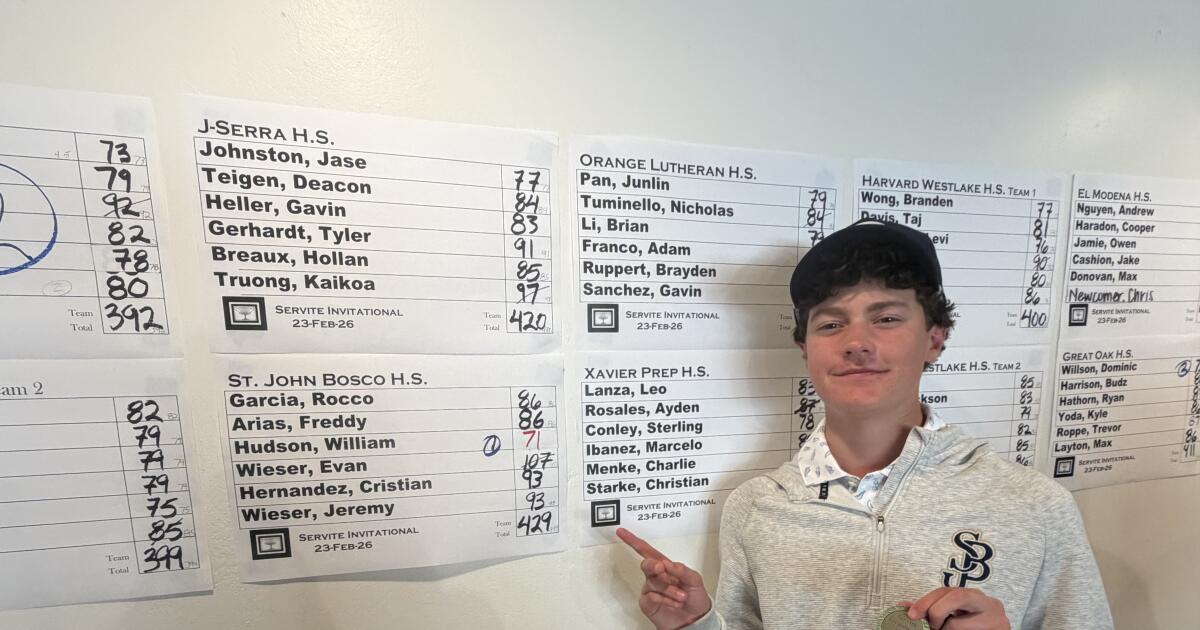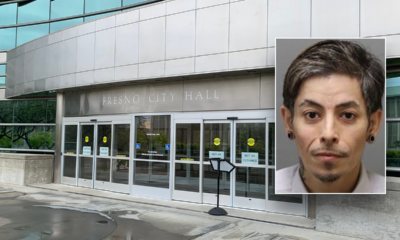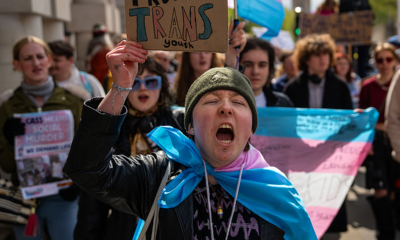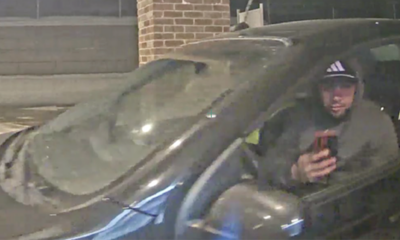Alaska
Alaska can expect very different approaches on resource projects, depending on the president

The federal government’s outsized influence in Alaska means the next president’s administration will have a huge impact on whether resource development projects all over the state move forward.
But that impact, of course, depends on who Americans elect to be president. And left hanging in the balance is everything from oil drilling in the Arctic, mining in western Alaska, a road through a national wildlife refuge to facilitate another mining district and logging in Southeast.
A recent story in the Anchorage Daily News took a look at how various projects might be affected if either Donald Trump or Kamala Harris is elected president.
ADN reporter Alex DeMarban wrote the story. He says we can expect very different approaches from Trump or Harris, but both sides seem focused on Alaska’s vastness.
Listen:
[Sign up for Alaska Public Media’s daily newsletter to get our top stories delivered to your inbox.]
This interview has been lightly edited for length and clarity.
Alex DeMarban: So for the Republican side, it’s our vast mineral wealth, our vast oil wealth, logging potential. From the Democratic side, it’s our beautiful, vast landscapes, large, unique wildlife populations and climate change concerns. And one of the consequences of the back and forth with these large projects is that it makes it difficult for, say, an investor, to look at long-term horizons and feel confident that if they invest billions of dollars, that their investment is going to pay off, because if the next president puts a halt to a project or is going to be hung up in court for eons, and that might be why the Arctic National Wildlife Refuge doesn’t seem to have a lot of interest from major oil companies. Or at least that is surely one reason.
Casey Grove: And, I mean, it’s not just ANWR either, right? Like there’s the NPR-A.
AD: Totally.
CG: One thing that was interesting about your story was you found that there’s this, like, Project 2025 connection to the NPR-A, right? It’s like, maybe not as exciting as exciting as some of the Project 2025 things that people are riled up about, but yeah, tell me about that.
AD: Yeah, it wasn’t just the National Petroleum Reserve-Alaska, but interestingly, in the Project, 2025 — which I should clarify, was said to be written by the Heritage Foundation, and President Trump, former President Trump, has disavowed it. But at any rate, there’s a special section in there on calling for immediate action in Alaska. Much of that section deals with resource development. It’s written by a former acting director under Trump of the Bureau of Land Management, and it calls on Trump to do things that we could probably expect him to do, even if there wasn’t such a thing as a Project 2025.
It talks about expanding drilling opportunities in the National Petroleum Reserve Alaska, which Biden has really clamped down upon and is even in the process of trying to further clamp down on that potentially. And it talks about renewing Trump’s efforts to allow logging opportunities in the Tongass National Forest. It also calls on Trump to immediately redo his efforts to have a 200-mile road through the wilderness for mining in Northwest Alaska, the Ambler road. Yeah, that was fascinating to see that this former BLM official had written that section, you know, just special for us in Alaska. Just, “Here, Trump, here’s what we want you to do.”
CG: Now, I mean, turning back to the possibility of a Kamala Harris presidency, is it just a foregone conclusion that her administration would oppose oil drilling in the Arctic, or is it a little bit more nuanced than that?
AD: It remains to be seen, but it largely seems like, from former officials and observers, experts in this area who I talk to, she can be generally expected to resume Biden’s approaches when it comes to big Alaska projects. And one area that’s been favorable for Alaska is renewable energy, which Biden has, you know, through bills, has brought in lots of money to Alaska.
CG: I mean, then there’s a handful of other sort of ideas or projects in Alaska. And you know, one of them that you focused on in the story was the Pebble Mine, or the proposed Pebble Mine. And that seems a little bit nuanced, too, in terms of, like, the permitting and how things have gone back and forth. And I wonder if you could tell me about that.
AD: Yeah, that’s an interesting one, and that’s kind of another departure from the norm, in that under the Trump administration, it was not a resource development project that got completed or advanced significantly. In fact, it was stopped under the Trump administration by the Army Corps (of Engineers). And then the Biden administration went even further and had the Environmental Protection Agency stop it. So that is one gray area right now. It looks like it won’t happen — ever, perhaps — certainly not anytime soon. But there is a lawsuit over it still brought by the developer, the potential developer, of the mine. And so it’s possible that it could come back up. And the developer basically thinks that under a Trump administration, there might be a little more of an opening to get the project back on track.
CG: And then, kind of along the same lines, I mean, you wrote about the Ambler Road, and you mentioned that earlier, too. With that one, it sounded like the back and forth and the permitting and the things that had been shut down with the Ambler Road would be much harder to undo. Is that right?
AD: Oh, yeah, that’s one area. Although, in general, a former Department of Justice litigator I spoke to, who worked on a lot of Alaska land issues, basically, he said Trump is going to have a lot of difficulty getting these projects advanced to a level again where they can’t be stopped. It takes a long time to allow resource development compared to halting resource development. And particularly if Trump guts the federal workforce, like he’s talked about doing. That’s going to make it even harder, because you need that expertise to make permits, you know, legally and regulatorily passable.

Casey Grove is host of Alaska News Nightly, a general assignment reporter and an editor at Alaska Public Media. Reach him atcgrove@alaskapublic.org. Read more about Caseyhere.

Alaska
Sand Point teen found 3 days after going missing in lake

SAND POINT, Alaska (KTUU) – A teenage boy who was last seen Monday when the canoe he was in tipped over has been found by a dive team in a lake near Sand Point, according to a person familiar with the situation.
Alaska’s News Source confirmed with the person, who is close to the search efforts, that the dive team found 15-year-old Kaipo Kaminanga deceased Thursday in Red Cove Lake, located a short drive from the town of Sand Point on the Aleutian Island chain.
Kaminanga was last seen canoeing with three other friends on Monday when the boat tipped over.
A search and rescue operation ensued shortly after.
Alaska Dive Search Rescue and Recovery Team posted on Facebook Thursday night that they were able to “locate and recover” Kaminanga at around 5 p.m. Thursday.
“We are glad we could bring closure to his family, friends and community,” the post said.
This is a breaking news story and will be updated when more details become available.
See a spelling or grammar error? Report it to web@ktuu.com
Copyright 2026 KTUU. All rights reserved.
Alaska
Opinion: Homework for Alaska: Sales tax or income tax?

This is a tax tutorial for gubernatorial candidates, for legislators who will report to work next year and for the Alaska public.
Think of it as homework, with more than eight months to complete the assignment that is not due until the November election. The homework is intended to inform, not settle the debate over a state sales tax or state income tax — or neither, which is the preferred option for many Alaskans.
But for those Alaskans willing to consider a tax as a personal responsibility to help fund schools, roads, public safety, child care, state troopers, prisons, foster care and everything else necessary for healthy and productive lives, someday they will need to decide on a state income tax or a state sales tax after they accept the checkbook reality that oil and Permanent Fund earnings are not enough.
This homework assignment is intended to get people thinking with facts, not emotions. Electing the right candidates will be the first test.
Alaskans have until the next election because nothing will change this year. It will take a new political alignment led by a reality-based governor to organize support in the Legislature and among the public.
But next year, maybe, with the right elected leadership, Alaskans can debate a state sales tax or personal income tax. Plus, of course, corporate taxes and oil production taxes, but those are for another school day.
One of the biggest arguments in favor of a state sales tax is that visitors would pay it. Yes, they would, but not as much as many Alaskans think.
Air travel is exempt from sales taxes. So are cruise ship tickets. That’s federal law, which means much of what tourists spend on their Alaska vacation is beyond the reach of a state sales tax.
Cutting further into potential revenues, state and federal law exempts flightseeing tours from sales tax, which is a particularly costly exemption when you think about how much visitors spend on airplane and helicopter tours.
That leaves sales tax supporters collecting from tourists on T-shirts, gifts for grandchildren, artwork, postcards, hotels, Airbnb, car rentals and restaurant meals. Still a substantial take for taxes, but far short of total tourism spending.
An argument against a state sales tax is that more than 100 cities and boroughs already depend on local sales taxes to pay for schools and other public services. Try to imagine what a state tax piled on top of a local tax would do to kill shopping in Homer, already at 7.85%, or Kodiak, Wrangell and Cordova, all at 7%, and all the other municipalities.
Supporters of an income tax say it would share the responsibility burden with nonresidents who earn income in Alaska and then return home to spend their money.
Almost one in four workers in Alaska in 2024 were nonresidents, as reported by the state Department of Labor in January. That doesn’t include federal employees, active-duty military or self-employed people.
Nonresidents earned roughly $3.8 billion, or about 17% of every dollar covered in the report.
However, many of those nonresident workers are lower-wage and seasonal, employed in the seafood processing and tourism industries, unlikely to pay much in income taxes. But a tax could be structured so that they pay something, which is fair.
Meanwhile, higher-wage workers in oil and gas, mining, construction and airlines (freight and passenger service) would pay taxes on their income earned in Alaska, which also is fair.
It comes down to what would direct more of the tax burden to nonresidents: a tax on income or on visitor spending. Wages or wasabi-crusted salmon dinners.
Larry Persily is a longtime Alaska journalist, with breaks for federal, state and municipal public policy work in Alaska and Washington, D.C. He lives in Anchorage and is publisher of the Wrangell Sentinel weekly newspaper.
• • •
The Anchorage Daily News welcomes a broad range of viewpoints. To submit a piece for consideration, email commentary(at)adn.com. Send submissions shorter than 200 words to letters@adn.com or click here to submit via any web browser. Read our full guidelines for letters and commentaries here.
Alaska
Nome brothers summit Mt. Kilimanjaro, carry Alaska flag to third major peak

ANCHORAGE, Alaska (KTUU) – Two brothers from Nome recently stood at the summit of Mount Kilimanjaro in Africa, planting an Alaska flag at 19,000 feet above the African plains.
The Hoogendorns completed the seven-day climb — five and a half days up and a day and a half down — trekking through rainforest, desert, and alpine terrain before reaching snow near the summit. The climb marks their third of the world’s seven summits.
Night hike to the top
The brothers began their final summit push at midnight, hiking through the night to reach the top by dawn.
“It was almost like a dream,” Oliver said. “Because we hiked through the night. We started the summit hike at midnight when you’re supposed to be sleeping. So, it was kind of like, not mind boggling, but disorienting. Because you’re hiking all night, but then you get to the top and you can finally see. It’s totally different from what you’d expect.”
At the summit, temperatures hovered around 10 degrees — a familiar range for the Nome brothers. Their guides repeatedly urged them to put on jackets, but the brothers declined.
“We got to the crater, and it was dark out and then it started getting brighter out,” Wilson said. “And then you could slowly see the crater like illuminating and it’s huge. It’s like 3 miles across or something. Like you could fly a plane down on the crater and be circles if you want to. Really dramatic view.”
A team of 17 for two climbers
Unlike their previous expeditions, the brothers were supported by a crew of 17 — including porters, a cook, guides, a summit assistant, and a tent setup crew.
The experience deviated from their earlier climbs, where they carried their own food, melted snow for water, and navigated routes independently.
“I felt spoiled,” Wilson said. “I was like, man, the next mountain’s gonna be kind of hard after being spoiled.”
Alaska flag on every summit
Oliver carried the same full-size Alaska flag on all three of his major summits, including in South America and Denali in North America, despite the added weight in his pack.
“I take it everywhere these days,” Oliver said. “It’s always cool to bring it out. And then people ask, you know, ‘where’s that flag from?’ Say Alaska.”
When asked about his motivation for the expeditions, Wilson said “I guess to like inspire other people. Because it seems like a lot of people think they can’t do something, but if you just try it, you probably won’t do good the first time, but second time you’ll do better. Because you just got to try it out. Believe in yourself.”
Background and next goals
The Hoogendorns won the reality competition series “Race to Survive: Alaska” in 2023. In 2019, they were the first to climb Mount McKinley and ski down that season. Oliver also started a biking trip from the tip of South America to Prudhoe Bay with hopes of still completing it.
Kilimanjaro is their third summit. The brothers said they hope to eventually complete all seven summits, with Mount Vinson in Antarctica among the peaks they are considering next… all while taking Alaska with them every step of the way.
See a spelling or grammar error? Report it to web@ktuu.com
Copyright 2026 KTUU. All rights reserved.
-

 World1 day ago
World1 day agoExclusive: DeepSeek withholds latest AI model from US chipmakers including Nvidia, sources say
-

 Massachusetts2 days ago
Massachusetts2 days agoMother and daughter injured in Taunton house explosion
-

 Montana1 week ago
Montana1 week ago2026 MHSA Montana Wrestling State Championship Brackets And Results – FloWrestling
-

 Oklahoma1 week ago
Oklahoma1 week agoWildfires rage in Oklahoma as thousands urged to evacuate a small city
-

 Louisiana4 days ago
Louisiana4 days agoWildfire near Gum Swamp Road in Livingston Parish now under control; more than 200 acres burned
-

 Technology6 days ago
Technology6 days agoYouTube TV billing scam emails are hitting inboxes
-

 Denver, CO2 days ago
Denver, CO2 days ago10 acres charred, 5 injured in Thornton grass fire, evacuation orders lifted
-

 Technology6 days ago
Technology6 days agoStellantis is in a crisis of its own making

















